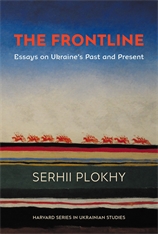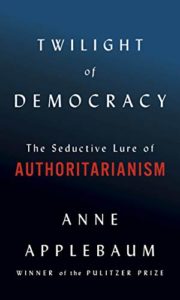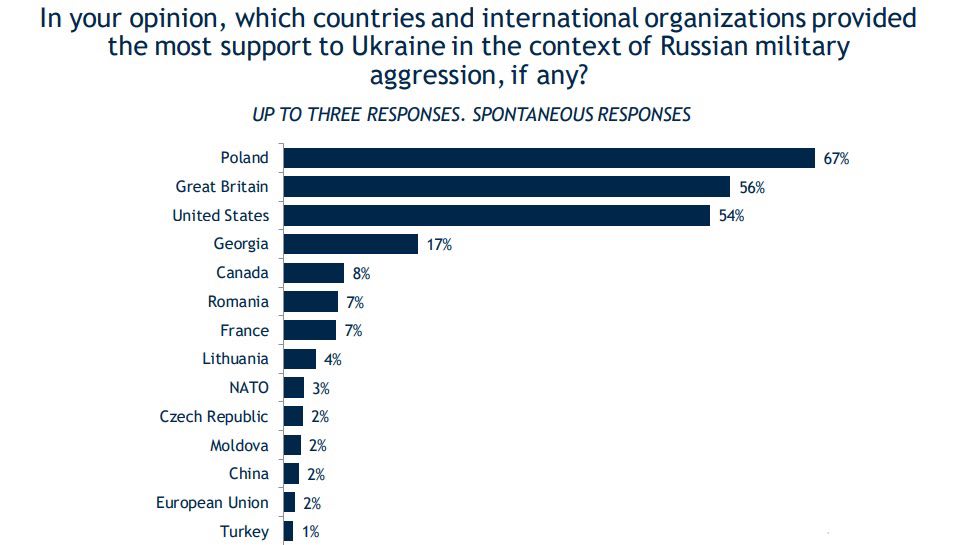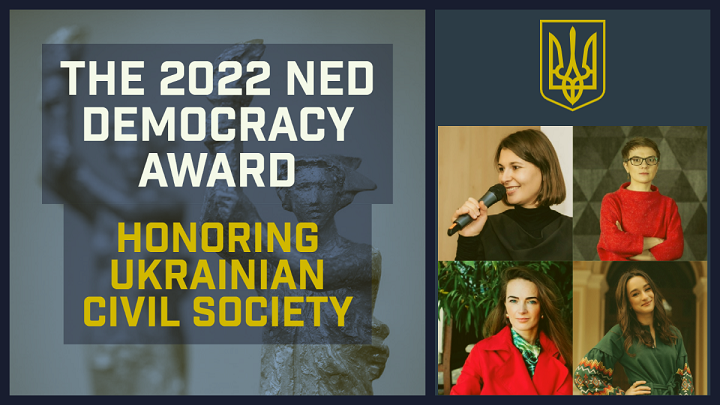“Ukraine has always aspired to be free”, Voltaire wrote back in the eighteenth-century. He knew that most of his French readers could barely find this “unknown land” on a map, so he helpfully described its location between Poland and Russia, the two political nemeses of Ukrainian history, notes Larry Wolff, Professor of History at New York University. In his view the aspirations to freedom had arisen because, as part of Peter the Great’s Russian empire (which Voltaire generally admired), Ukraine was being governed “in slavery”.
Three centuries later the international public finds it newly urgent to reckon with Ukraine’s aspirations to freedom and the implications of Russian enslavement, he writes for The TLS.
 Russia’s poor military performance is a manifestation of the unchecked authoritarian penchant for secrecy, says historian Serhii Plokhy, author of The Frontline: Essays on Ukraine’s past and present, from the Harvard Ukrainian Research Institute:
Russia’s poor military performance is a manifestation of the unchecked authoritarian penchant for secrecy, says historian Serhii Plokhy, author of The Frontline: Essays on Ukraine’s past and present, from the Harvard Ukrainian Research Institute:
Russia’s army expected to conquer Ukraine within days; instead, more than three months on, it finds itself bogged down in a grinding war of attrition, destroying town after town at a horrifying cost in lives and materiel. The Ukrainian military, on the other hand, placed more confidence in field commanders to make their own decisions, drawing on years of training with Nato countries.
“Ukraine was one of the very few post-Soviet countries where, actually, democracy prevailed,” he tells The New Statesman. “There were two attempts to introduce some form of authoritarianism, and they were rejected through two revolutions on the Maidan,” he added, referring to the protests in Kyiv 2004-05 and 2014.
“This is the case where this Nato philosophy of waging the war and Ukrainian political philosophy clicked and produced this miracle,” he said. “And we see now the army that no one ever knew existed fighting the most feared army in the world and winning.”
 Ukraine is engaged in an existential conflict, Pulitzer Prize-winning historian Anne Applebaum told the University of Notre Dame’s Nanovic Institute for European Studies (above), echoing President Biden’s framing of the war as an existential struggle between democracy and autocracy to maintain the international rule of law.
Ukraine is engaged in an existential conflict, Pulitzer Prize-winning historian Anne Applebaum told the University of Notre Dame’s Nanovic Institute for European Studies (above), echoing President Biden’s framing of the war as an existential struggle between democracy and autocracy to maintain the international rule of law.
In order to undermine Putin, support Russian dissidents like Dmitry Gudkov, argues Stanford’s Michael McFaul. Gudkov is a famous opposition leader and member of the Russian Anti-War Committee, a group of exiled Russian figures actively working against the war.
Governments sanctioning Russian citizens should establish a “Russia freedom commission” of independent experts who could make recommendations about exiled Russian activists who need bank accounts, credit cards, travel documents, visas and work permits, he writes for The Washington Post:
Members of this commission could be drawn from the Russian Anti-War Committee, True Russia (another Russian group in exile dedicated to ending Putin’s war), human rights activists from both Russia and Ukraine, and nongovernment democracy promotion organizations that previously operated in Russia and therefore know the opposition movement well. A stamp of approval from this committee could help banks, landlords, credit card companies and governments when making decisions about these Russians living in exile.
But observers in the West are wrong to assume Putin thinks he’s losing the conflict, Tatiana Stanovaya, founder and CEO of political analysis firm R.Politik, wrote for Foreign Policy.
The assumption that Putin knows he’s losing “stems from the mistaken idea that Russia’s main goal is to seize control of large parts of Ukraine—and therefore, when the Russian military performs badly, fails to advance, or even retreats, that this amounts to failure.” But its main goal is aimed at preventing Ukraine from co-operating with the NATO military alliance and making the country accept Russian influence in the form of “Russification.”
 In a recent survey by the International Republican Institute, a core partner of the National Endowment for Democracy (NED), 97% of Ukrainians are confident their country will prevail in the war, despite the barbaric attacks and war crimes being committed by Putin’s forces, notes David J. Kramer, Managing Director of Global Policy, at the George W. Bush Institute. 83% believe that the war will end before the close of 2022. Putin’s underestimation of Ukrainians’ readiness and determination to fight and defend their land and freedom has proven very costly for Russia, he writes for Catalyst.
In a recent survey by the International Republican Institute, a core partner of the National Endowment for Democracy (NED), 97% of Ukrainians are confident their country will prevail in the war, despite the barbaric attacks and war crimes being committed by Putin’s forces, notes David J. Kramer, Managing Director of Global Policy, at the George W. Bush Institute. 83% believe that the war will end before the close of 2022. Putin’s underestimation of Ukrainians’ readiness and determination to fight and defend their land and freedom has proven very costly for Russia, he writes for Catalyst.
 In Europe, the challenge of perception is real, says former Estonian President Toomas Hendrik Ilves. Russian propaganda painting Eastern Europe as backward and corrupt, Ilves believes, has been successful in Western Europe.
In Europe, the challenge of perception is real, says former Estonian President Toomas Hendrik Ilves. Russian propaganda painting Eastern Europe as backward and corrupt, Ilves believes, has been successful in Western Europe.
“I think Ukraine has been a sort of a big victim of this kind of disdain,” he tells NPR.
But despite corruption and flaws present in the government, Ukrainians are fighting to defend their liberal democracy, Ilves said, and he believes they deserve the support of likeminded countries. “They clearly need heavy arms,” he concluded.
Recognizing resilience
The National Endowment for Democracy (NED) will recognize the resilience of Ukrainian civil society with its 2022 Democracy Award on Wed, Jun 8, 4:00 PM EDT. NED will honor four partner organizations that continue their critical work advancing and protecting human rights, demanding accountability, strengthening independent media, and mobilizing support for their country.

“Ukraine’s democratic development, led by its people and civil society, is key to the country’s success—not only to restore peace, but also to ensure Ukraine emerges stronger from this horrific war,” said Damon Wilson, president and chief executive officer of NED. “These four organizations exemplify the heroic struggle, courage, and determination of millions of Ukrainians who risk everything to defend democracy and freedom.” RSVP
On June 21 at 8 p.m., the Big Ten Collaboration on 21st Century Democracy hosts a live virtual conversation Ukraine: Implications for Democracy in the U.S. and Globally, with Senate Foreign Relations Committee members Ben Cardin (D-MD) and Rob Portman (R-OH). RSVP
https://t.co/l0r7NwiiFq Russia’s poor military performance in #Ukraine is a manifestation of the unchecked authoritarian penchant for secrecy, historian Serhii Plokhy tells @NewStatesman‘s @AlixKroeger
— Democracy Digest (@demdigest) June 2, 2022







